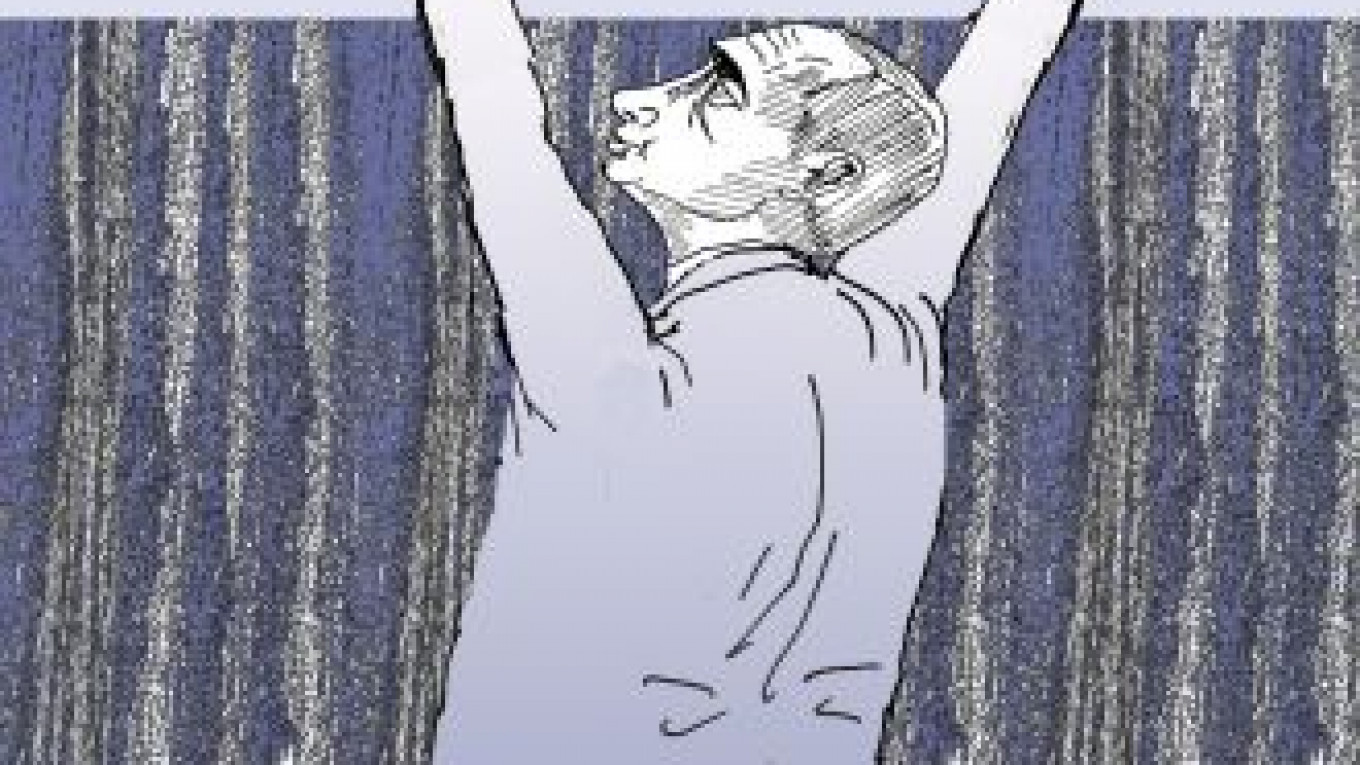FROM THE PULPIT / Проповеди
A joint project between Dozhd TV and The Moscow Times
The electoral fraud that outraged so many Russians is actually just one example of a much larger phenomenon. Russia's electoral system and other government institutions are essentially mechanisms that serve the interests of a narrow group of individuals and not the interests of society as a whole.
Now, 20 years after the collapse of the Soviet Union, Russia's institutions remain woefully inadequate. Yes, Russia has free markets, prices and a functioning monetary policy, but it lacks a separation of powers and independent courts.
Of course, it might be argued that this is simply the result of incomplete reforms. But it might also be viewed as a finished project — what we might call "Putin's project." Prime Minister Vladimir Putin did not reform the old Soviet structures. He perpetuated and used them to gain control over the country's vast wealth and to distribute it among his close associates.
For example, the Soviet punitive system continues virtually unchanged in the hands of the current ruling group. And that system — incredibly effective at accomplishing the redistribution of wealth and assets — has become a standard fixture of the country's government.
What ordinary people call "corruption," the authorities consider an effective incentive system. What the rest of world calls election fraud, Russia's leaders view as the means for maintaining control over the country's resources.
The consequence of this system is that good government ministers are fired, bad ones hold onto their jobs for years, and a good governor can be dismissed for failing to falsify election results to get the right number. In short, the main thing that this corrupt system demands of its participants is that they be willing to lie.
At the same time, the government functionaries controlling those resources are not really their own bosses. Strictly speaking, they are neither independent businessmen nor oligarchs. They are more like obedient sentries whose wealth is purely conditional.
The fact that almost all midsized or larger Russian companies register abroad speaks volumes. Their largest transactions are conducted safely beyond Russia's borders, and the most complex and important disputes are resolved in courtrooms in London or Stockholm, not in Moscow.
One of the reasons this system is so rotten is because Russians from Putin's generation grew up in the Soviet Union as it entered its last stages of decay. Everyone understood that the Communist ideology was a sham and a senseless game. What's more, people were brainwashed into believing that the situation was no different in the West. They were told that behind the facade of democracy lurked an imperialist monster. That message, drilled into them from early childhood, ultimately tainted their thinking. Now, it is next to impossible to convince them that the world consists of more than the intrigues of enemies, threats from competitors and insidious provocations orchestrated by the U.S. State Department.
That obsolete way of thinking will just have to die a natural death. And it seems that it is already nearing the end. It will be a great victory if the growing public discontent finally puts an end to the KGB-like paranoia that has blended with the market-based economy. If that happens, we will have accomplished what the leaders of the early 1990s were unable to achieve. And it will be a major step toward modernization and the emergence of a government that serves the people.
Maxim Trudolyubov is opinion page editor of Vedomosti. This comment appeared on "From the Pulpit" ("Проповеди"), a joint television project between Dozhd TV and The Moscow Times. "Проповеди" can be seen on .
A Message from The Moscow Times:
Dear readers,
We are facing unprecedented challenges. Russia's Prosecutor General's Office has designated The Moscow Times as an "undesirable" organization, criminalizing our work and putting our staff at risk of prosecution. This follows our earlier unjust labeling as a "foreign agent."
These actions are direct attempts to silence independent journalism in Russia. The authorities claim our work "discredits the decisions of the Russian leadership." We see things differently: we strive to provide accurate, unbiased reporting on Russia.
We, the journalists of The Moscow Times, refuse to be silenced. But to continue our work, we need your help.
Your support, no matter how small, makes a world of difference. If you can, please support us monthly starting from just $2. It's quick to set up, and every contribution makes a significant impact.
By supporting The Moscow Times, you're defending open, independent journalism in the face of repression. Thank you for standing with us.
Remind me later.








